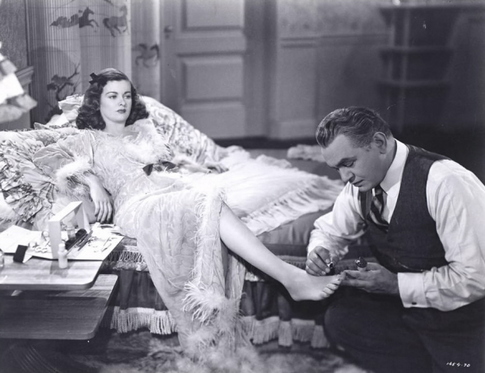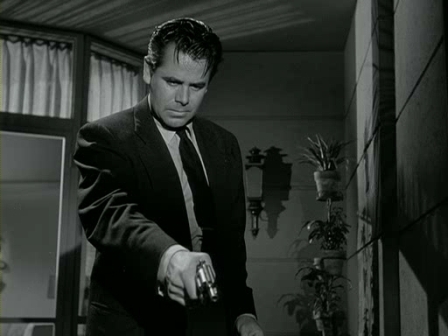Emotionally frigid and an insensitivity comparing favorably with the Waffen SS, filmmaker Fritz Lang(1890-1976) possessed the necessary psychological baggage to create the ”film noir ” genre of cinema. His conjunction of pathologies and neurosis, fueled by an expansive ego, Lang was the unlikely accidental instrument to create an empathy for the compulsive criminal mind. Favorable portrayals of Paul Bernardo and Carla Homolka would make the ”short” list.
The psycho-drama responded to his disconnect with human emotion and some of his own aberrant yet profound thinking. He was a product of pre-war, Weimar, and Nazi war Germany and seemed to sag under the weight of the German intellectual tradition producing some disturbing yet brilliant cinema in the process. His American films, though less artsy and visually impressive than ”M” or Metropolis, provided a more equilibrated context for Lang by tempering some of the pessimism and perversity of a simmering European cauldron set to boil over.
”As long observed in an extended interview with Peter Bogdanovich one of the most important transformations in his work from the German to the American period was a shift in focus from Nietschean supermen like Mabuse, Siegfried or the master of Metropolis to depictions of ‘average Joe’ protagonists… the bleakness of German expressionism gave way to a guarded optimism in the Glenn Ford films, which no doubt reflected the mellowing impact of over two decades in Hollywood”.
Theodor Adorno was not surprised by the success of Lang in prying open this newfound assault on the senses. The detached, remorseless brutality was filled with sonic effects and assimilated high cultural traditions welded to popular tastes and conventions. These were mature mythological narratives designed for audiences no longer capable of concentrated reception. The audience was seduced, the senses overwhelmed, the mind manipulated and the emotions engineered as the ghosts of Wagner and other ideologies of the German romantic movement brought their peculiar brand of amoral and unconscious drives to Hollywood formula.Lang scraped the residue from under the toilet seat in merging expressionism’s most obscure themes with his own personal pessimism . Adorno termed this ”universal necrophilia… the last perversity of style.”
Lang studied Freudian social psychology and its no coincidence the impact of his work often centered on schizophrenic, narcissistic and infantile behavior patterns. There is a power in films like ”The Big Heat” that prevented the viewers from having thoughts of their own. The cold somewhat geometric style expertly packaged psychological conflict,and fatalism laced with paranoia. An intellectual transfer of unresolved issues of German national and cultural identity into the new world. Lang is remembered for creating film personas that established ‘‘the integrity of an identity as social pariah”.







 COMMENTS
COMMENTS